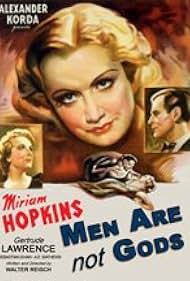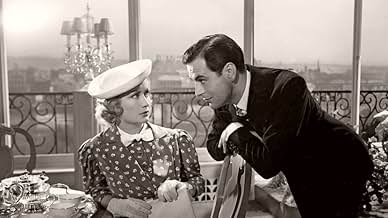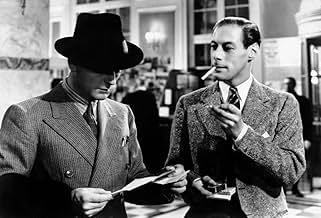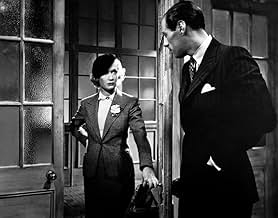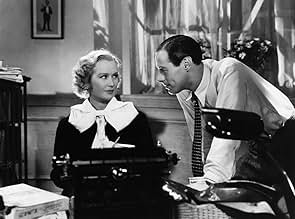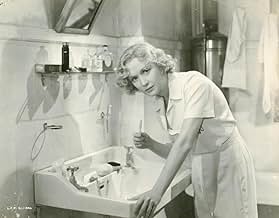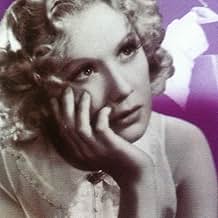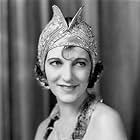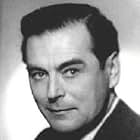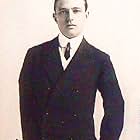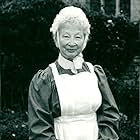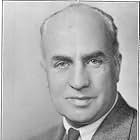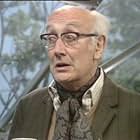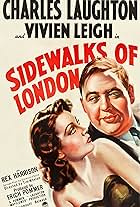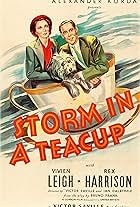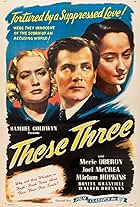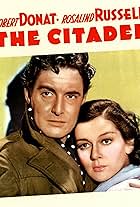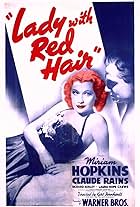Ajouter une intrigue dans votre langueActor Edmund Davey becomes a star overnight when his wife and co-star teams up with the secretary of a noted stage critic to produce a glowing review of his 'Othello'.Actor Edmund Davey becomes a star overnight when his wife and co-star teams up with the secretary of a noted stage critic to produce a glowing review of his 'Othello'.Actor Edmund Davey becomes a star overnight when his wife and co-star teams up with the secretary of a noted stage critic to produce a glowing review of his 'Othello'.
Lawrence Grossmith
- Stanley
- (as Laurence Grossmith)
Noël Coward
- Passer-by
- (uncredited)
Rosamund Greenwood
- Pianist
- (uncredited)
James Harcourt
- Porter
- (uncredited)
Michael Hogarth
- Cassio
- (uncredited)
Noel Howlett
- Cashier
- (uncredited)
Paddy Morgan
- Kitty
- (uncredited)
Nicholas Nadejin
- Iago
- (uncredited)
Avis en vedette
Fine stage presence from Gertrude Lawrence, who was at the top of her stage career around this time; unfortunately this is a film and screen presence is something entirely different. She makes numerous blunders, looking for her mark and even staring, obviously out of character, at the camera and the microphone... very amatuerish for 1926 let alone 1936. She had a fine voice as we can hear from her song during the performance of Othello, and legend has it she was a competent dancer although of course this part doesn't call for it. She can stand on screen with a major star like Hopkins, who was also at her peak, but Lawrence is clearly overpowered by Miriam's star wattage. Sebastian Shaw (who many decades later was still active with roles like Anakin Skywalker in "Return of the Jedi") has the role of her husband in this movie, and he completely outperforms her.
It is absurd to think of Gertrude Lawrence as a big screen star at any point. Critics who thought Lawrence should have had the lead in 1944's 'Lady in the Dark' - basically the only major push she ever received for a movie - would have been well served to watch her screen performances first. She simply doesn't show any indications of being able to carry a film herself like a Rogers or Hopkins or a Colbert, or like her compatriot Olivia DeHavilland, who in 1936 was taking Hollywood by storm.
Initially and quite ironically called "Triangle," this film was Hopkins' first English production although she had acted on the London stage before this. Making this film was a turning point in Hopkins' life; on her return trip on the 'Normandie' she met her future husband, director Anatole Litvak, with whom she was allegedly to find herself in a love triangle with Bette Davis.
It is absurd to think of Gertrude Lawrence as a big screen star at any point. Critics who thought Lawrence should have had the lead in 1944's 'Lady in the Dark' - basically the only major push she ever received for a movie - would have been well served to watch her screen performances first. She simply doesn't show any indications of being able to carry a film herself like a Rogers or Hopkins or a Colbert, or like her compatriot Olivia DeHavilland, who in 1936 was taking Hollywood by storm.
Initially and quite ironically called "Triangle," this film was Hopkins' first English production although she had acted on the London stage before this. Making this film was a turning point in Hopkins' life; on her return trip on the 'Normandie' she met her future husband, director Anatole Litvak, with whom she was allegedly to find herself in a love triangle with Bette Davis.
Theatre critic Mr Skeates's (A.E Matthews) secretary, Ann (Miriam Hopkins) re-writes a theatre review about Edmund (Sebastian Shaw) at the request of his wife, Barbara (Gertrude Lawrence) in order to paint Edmund in a good light. Following the review, Edmund has a successful career alongside his wife but Ann is given the sack. Edmund and Ann fall in love with each other but Barbara is still in the picture and they can only be together if Barbara is completely out of the way. Barbara and Edmund are both starring in Shaespeare's "Othello" and 'Desdemona''s death scene on stage seems the perfect opportunity for Edmund's 'Othello' to do what he deems necessary.
The women make this picture. Both Hopkins and Lawrence are good in their roles while a special mention must go to Laura Smithson as the maid "Katherine". She provides the best moment of the film when a painter (Sybil Grove) comes to try and blackmail her with a painting of Edmund and Ann together in the park - a painting that will cause scandal and obviously upset Barbara. The way that Katherine haggles down the price with the use of a knitting needle and a knife is most commendable and very amusing.
Unfortunately, the men most certainly are not Gods. They are very irritating with Sebastian Shaw coming off as the best, but only because he doesn't shout his way through the film or assault us with dialogue that is machine-gunned at us at 100mph. This is the technique used by both Matthews and Harrison and it is very irritating. It's as if they both thought - "hmm my character works for a newspaper. Let me think. I know, I'll talk really fast and shout a lot. Yeah, that's a good idea". Well it isn't and it ruins the film from the outset when we see the very pretentiously named A. E. Matthews dictate a review to Hopkins in this style. You think "Thank God!" when the scene is over, but then Harrison takes over with exactly the same style.
The story moves quite quickly but it has peculiar moments to it that don't make sense, eg, Barbara encouraging Ann and Edmund to spend time with each other, Edmund's love for Ann, and the ending where poor Ann is just discarded. We end the film feeling sorry for her. It's a film that is OK to watch with some irritating men and a couple of funny moments. Nothing more.
The women make this picture. Both Hopkins and Lawrence are good in their roles while a special mention must go to Laura Smithson as the maid "Katherine". She provides the best moment of the film when a painter (Sybil Grove) comes to try and blackmail her with a painting of Edmund and Ann together in the park - a painting that will cause scandal and obviously upset Barbara. The way that Katherine haggles down the price with the use of a knitting needle and a knife is most commendable and very amusing.
Unfortunately, the men most certainly are not Gods. They are very irritating with Sebastian Shaw coming off as the best, but only because he doesn't shout his way through the film or assault us with dialogue that is machine-gunned at us at 100mph. This is the technique used by both Matthews and Harrison and it is very irritating. It's as if they both thought - "hmm my character works for a newspaper. Let me think. I know, I'll talk really fast and shout a lot. Yeah, that's a good idea". Well it isn't and it ruins the film from the outset when we see the very pretentiously named A. E. Matthews dictate a review to Hopkins in this style. You think "Thank God!" when the scene is over, but then Harrison takes over with exactly the same style.
The story moves quite quickly but it has peculiar moments to it that don't make sense, eg, Barbara encouraging Ann and Edmund to spend time with each other, Edmund's love for Ann, and the ending where poor Ann is just discarded. We end the film feeling sorry for her. It's a film that is OK to watch with some irritating men and a couple of funny moments. Nothing more.
Very interesting cast in this 1936 British film that predates A DOUBLE LIFE by nearly a decade.
Miriam Hopkins plays a secretary who alters a scathing review of an actor in OTHELLO at his wife's (Gertrude Lawrence) behest. The wife turns out to be correct and the actor (Sebastian Shaw) goes on to become the rage of London's West End. Hopkins then becomes obsessed with the actor and starts going to all the performances of the play. Shaw then become smitten with Hopkins and we get a parallel story of jealousy and rage finally played out on the stage as Shaw's Othello tries to kill Lawrence's Desdemona. All very intriguing and very well played with bits of humor here and there.
Hopkins is, as always, eminently watchable. She was a great actress whose reputation has rather dimmed with the passing decades, but in the 30s she ranked with the top star actresses and was equally at home in drama or comedy. Lawrence is interesting to see in a good role. Not a traditional beauty, but she was a major stage star in her day and she's very good in this film. Shaw is rather bland but does OK with the Shakespearean scenes.
Rex Harrision plays a gawky suitor after Hopkins. A.E. Matthews is very good as the theatre critic. Sybil Grove plays the painter in the park, Laura Smithson is funny as the acid maid, and Val Gielgud (brother to John Gielgud) plays the producer.
But Hopkins is the star. One wonders how she came to star in this British film for Alexander Korda since her Hollywood career was still going strong.
Miriam Hopkins plays a secretary who alters a scathing review of an actor in OTHELLO at his wife's (Gertrude Lawrence) behest. The wife turns out to be correct and the actor (Sebastian Shaw) goes on to become the rage of London's West End. Hopkins then becomes obsessed with the actor and starts going to all the performances of the play. Shaw then become smitten with Hopkins and we get a parallel story of jealousy and rage finally played out on the stage as Shaw's Othello tries to kill Lawrence's Desdemona. All very intriguing and very well played with bits of humor here and there.
Hopkins is, as always, eminently watchable. She was a great actress whose reputation has rather dimmed with the passing decades, but in the 30s she ranked with the top star actresses and was equally at home in drama or comedy. Lawrence is interesting to see in a good role. Not a traditional beauty, but she was a major stage star in her day and she's very good in this film. Shaw is rather bland but does OK with the Shakespearean scenes.
Rex Harrision plays a gawky suitor after Hopkins. A.E. Matthews is very good as the theatre critic. Sybil Grove plays the painter in the park, Laura Smithson is funny as the acid maid, and Val Gielgud (brother to John Gielgud) plays the producer.
But Hopkins is the star. One wonders how she came to star in this British film for Alexander Korda since her Hollywood career was still going strong.
Ann is the secretary for a theatre critic...a critic who is about to savage the performance of Edmond Davey as Othello. But something weird (and completely unbelievable) happens...the Mrs. Davey (who plays Desdemona) begs the secretary not to send the article to the printer. While I have no idea why, Ann does something else...she changes the article to make it appear as if the reviewer LOVED Davey's performance! Not surprisingly, Ann loses her job. But then she does something else very strange...she goes to see "Othello" and soon finds herself falling in love with Edmond! Eventually, he begins to feel the same and soon you wonder if the finale of the next production might REALLY result in the death of Desdemona!
There are two main problems with the film. A few performances are a bit shrill--particularly Miriam Hopkins as Ann. Additionally, again and again, the actions of folks (most often but not exclusively Ann) make little sense. For a better take on "Othello", try "A Double Life".
There are two main problems with the film. A few performances are a bit shrill--particularly Miriam Hopkins as Ann. Additionally, again and again, the actions of folks (most often but not exclusively Ann) make little sense. For a better take on "Othello", try "A Double Life".
Ridiculous, tone-wavering melodrama of women and the awful men they love, this British vehicle for American Miriam Hopkins showcases her at her most feverish, as the impulsive secretary to an unctuous drama critic. The West End-circa-1935 milieu is one of the film's most entertaining aspects, and it diverts us from the many plot improbabilities. Miriam, altering her boss's review to look more favorably upon a young actor playing Othello, becomes besotted with him, to the point of endangering his marriage. Gertrude Lawrence, as the wife and his Desdemona, displays none of the quirkiness or spontaneity that made her a stage legend in this dull part (one wonders why she took it), and Rex Harrison, as the obit writer wooing Hopkins, isn't given much to do and in fact exits the picture early. The writer-director does construct some forward- thinking visual elements, and the picture's refreshingly non-Production Code in its Brit sophistication about possible adultery. But the characters are so poorly drawn that we're not sure whom to root for, and Hopkins' dithering becomes tiresome.
Le saviez-vous
- AnecdotesAccording to a studio press book on this movie, the demolition of the Alhambra Theatre was delayed so that it could be used for staging the play "Othello" for this production.
- GaffesThe "goodbye" letter Ann writes to Edmund is not the same one as he is initially shown holding and reading. The words are the same, but the formatting is completely different. After speaking with Tommy, a close-up of the original is seen again.
- Citations
Barbara Halford: [to Edmund] Now, now go and find Ann - and say something nice to her.
- ConnexionsReferences Three Little Pigs (1933)
Meilleurs choix
Connectez-vous pour évaluer et surveiller les recommandations personnalisées
Détails
- Date de sortie
- Pays d’origine
- Langue
- Aussi connu sous le nom de
- Triangle
- Lieux de tournage
- Hyde Park, Westminster, Greater London, Angleterre, Royaume-Uni(Ann and Edmund meet near the bandstand)
- société de production
- Consultez plus de crédits d'entreprise sur IMDbPro
- Durée1 heure 30 minutes
- Couleur
- Rapport de forme
- 1.37 : 1
Contribuer à cette page
Suggérer une modification ou ajouter du contenu manquant
